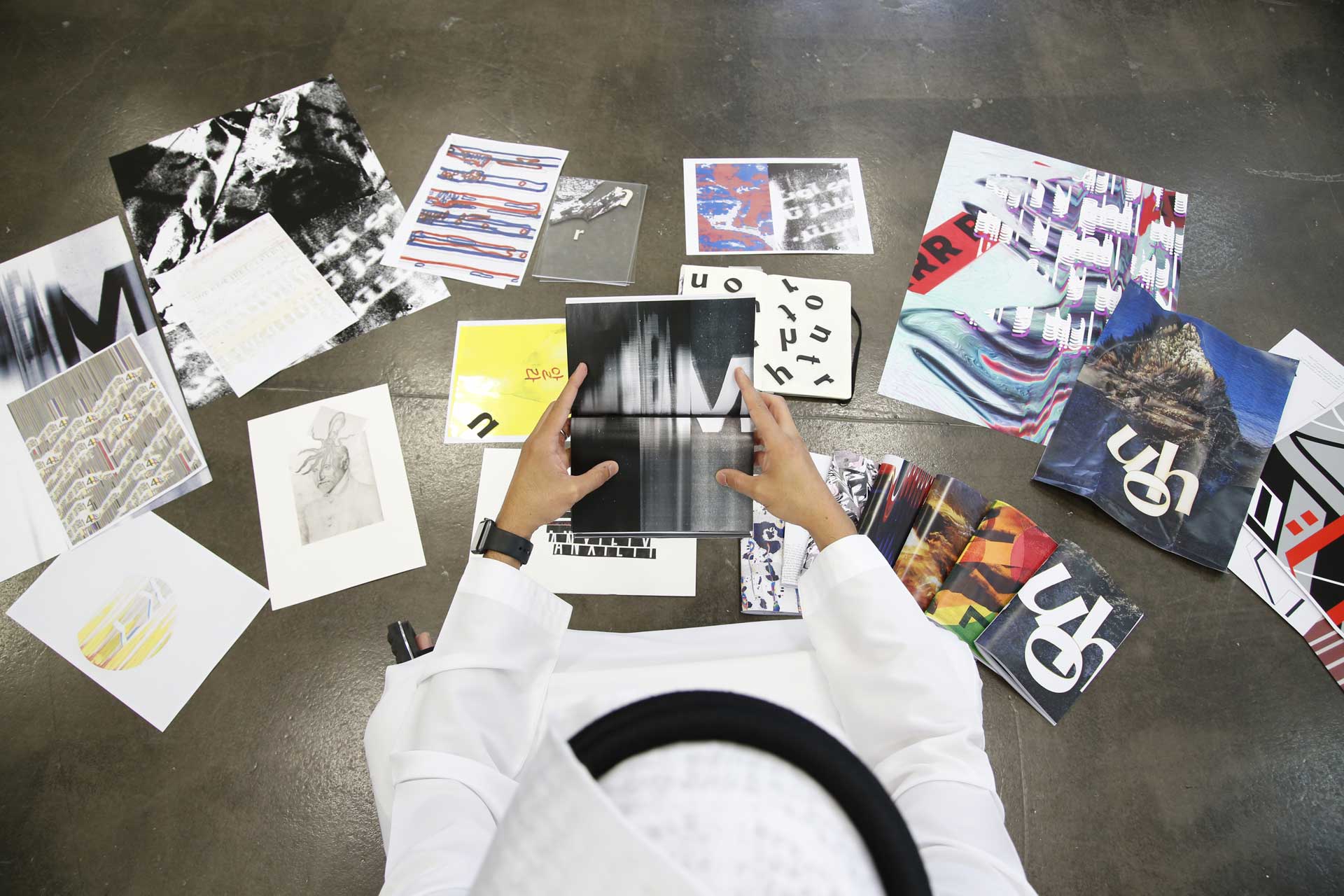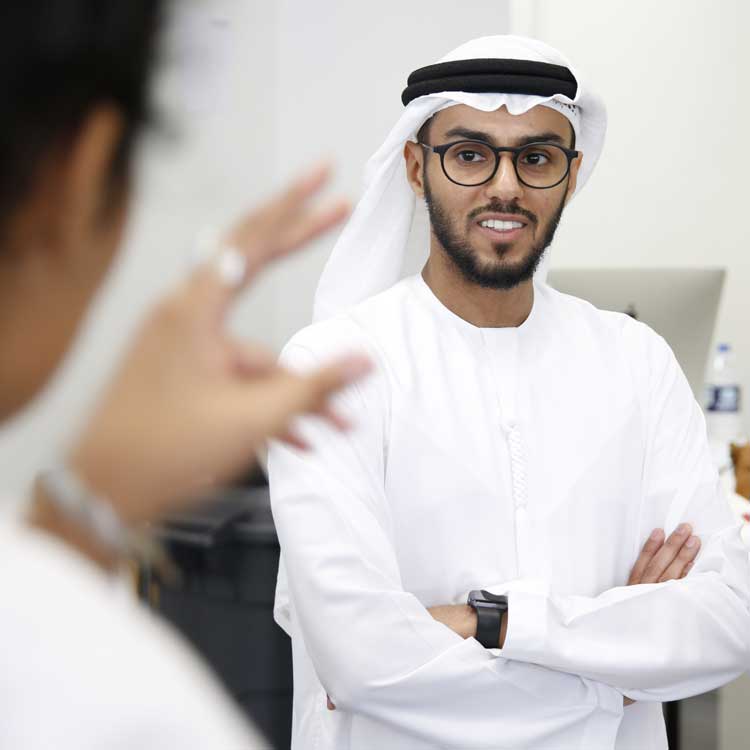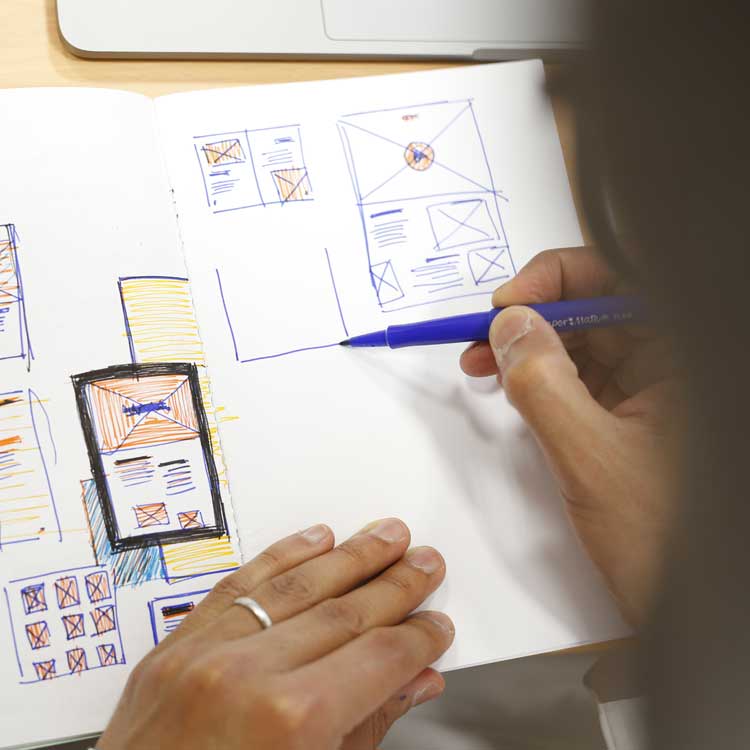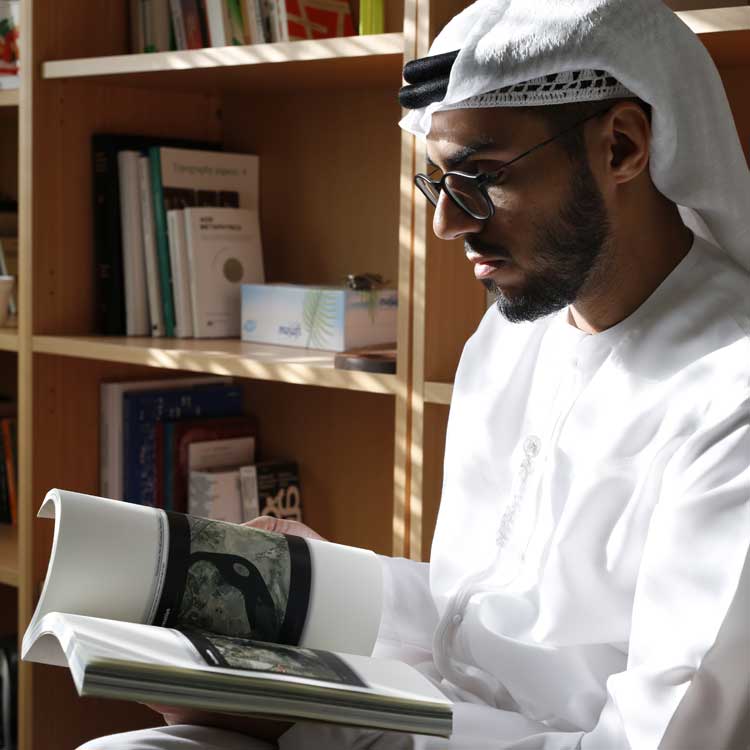


6. Salem Al-Qassimi
“To be a designer is to be able to constantly seek to clarify abstract information by giving it form, and to be the transmitter of messages in a way that makes them accessible,” says Salem Al-Qassimi of the design studio Fikra.
“It does not matter which technology is used to do that, because technology will evolve and change over time. It is only a tool.”
The entrepreneur began making things before high school, designing – by hand – a magazine readable by wearing red-and-blue 3D glasses.
Within a year, he was building websites, and now he is the Principal of Fikra, the Sharjah-based multidisciplinary design studio he founded in 2006 which intertwines Islamic values, culture and design. And while technology may change, he believes some things will always remain constant – the power of the message, and the importance of communicating it in an accessible way.
“The first magazine I created included a lot of things that represented my thoughts and the things I liked, as well as what was going on in the world at the time,” recalled Salem, who, in addition to heading Fikra, is also Assistant Professor of Design at American University of Sharjah (AUS).
“It was priceless. I always thought of graphic design as a way of facilitating a conversation or a means of communicating something. The field is really interesting because it is always current – it is defined by its time. Obviously, I did not know that back then, but I wanted to study design because of its adaptability and its capacity for communication.”
Salem founded Fikra after studying at the American University of Sharjah and the Rhode Island School of Design. His motive, he says, was to “be able to work in a truly experimental design studio that refused to be defined as something conventional”.
But he didn’t set out to be an entrepreneur. “I didn’t really think of it that way,” he insists. “I just wanted to work in a place that allowed room for experimentation, research, and play, and I started Fikra because there was a lack of such a place.
“I worked in London for a little while before coming back to the UAE. The company I worked for was really inspiring, and the people were incredible. They were probably my inspiration to start Fikra.”
More than a decade on, Salem – who picks out Fikra’s 10th anniversary as his greatest milestone to date – is a practicing designer and an educator. “Through my work, and the work of the studio, I highlight the importance and relevance of Arabic design and content,” he explained.
“We have a wide range of clients - from startups to multinational organisations - including Sheraa Sharjah Entrepreneurship Center, Art Dubai Fair, and several restaurants. And, as an educator, my emphasis is on teaching bilingual Arabic and English graphic design, introducing students to aspects of Arabic design and typography and stressing its importance, especially in this part of the world where everything is bilingual.”
Fikra has won a host of awards, most recently a ShjSeen StartUp Award. Salem himself has been honoured as a pioneer and mentor at the Cultural Excellence Fellowship British Council and ADMAF. He won the Young Creative Entrepreneur Culture Award from the British Council, gathered several design awards from international visual communication journal Graphis, and was named as one of the Forbes Leaders Inspiring the UAE in 2015.
He credits his progress to his family – “My wife is also a partner and major player in shaping Fikra” – and his Fikra team “to whom I am extremely grateful”. And he’s confident of more success to come – although, naturally, he’s staying tight-lipped. “I’m working on a few projects,” he smiles, “and hopefully you’ll hear about them.”

Salem hopes more young Emiratis will recognize the value and the enjoyment that can come from stepping outside commonly-followed careers.
“Traditional areas such as business and banking are very useful, but a lot more specific in their approach. Graphic design – or any other design discipline, for that matter – is much more interdisciplinary. Designers seldom work purely within design; they usually work with individuals and companies from a wide range of disciplines, from banking to healthcare and engineering.
“That is why it’s such an interesting career path, one that offers quite a lot of possibilities, and one which I would encourage UAE youth to consider a career in because it is a way of thinking that is extremely beneficial today, and will continue to be into the future.”

